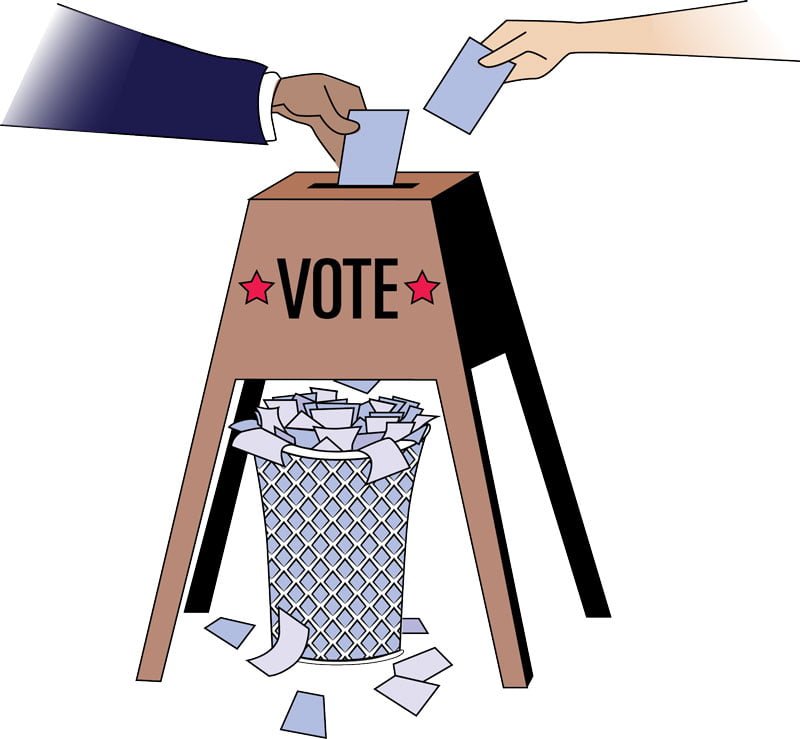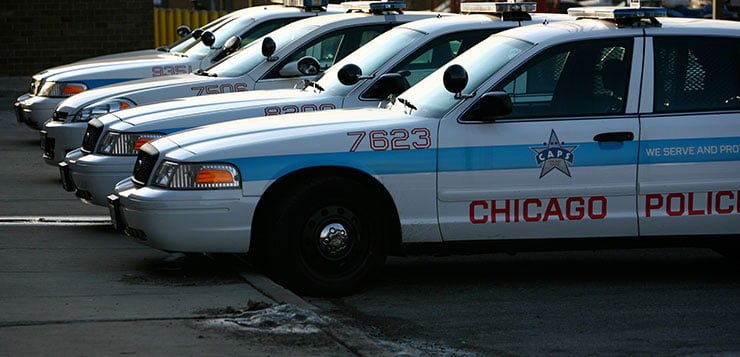
Every election cycle brings something new to mull over.
A balding, bespectacled old man speaking Brooklyn-ese and an artificially orange business mogul have gotten their fair share of press (one, of course, more than the other), and though they are on different sides of the aisle, they both believe the voting systems of both parties are rigged.
This election cycle, however, has provided a “lesson” in rigging — though not in the way it should. Candidates have long complained that the party systems for voting are against them, but in many ways it’s the voter who suffers.
After his loss in Colorado, Donald Trump claimed the system, particularly the state’s Republican Party, was against him and that voters were robbed of the opportunity to fully express themselves and exercise their God given right. For Sanders, New York’s closed voting system was a problem. Both called foul play, saying they were robbed, bamboozled, and the voter, cheated.
Though stealing is one thing and losing is another, the candidates have a point.
The voting and nomination processes of both parties have been around for the last few decades (for the Republicans the method was changed after the 2012 election).
There are closed or open primaries, which determine who is eligible to vote. Closed primaries mean a registered voter can only vote Democrat, if registered as a Democrat, or Republican if registered as a Republican. Open primaries are the opposite. The nuances here depend on the state and that’s typically where the argument comes in, but the candidates know the rules.
“All rules are biased. Any rule-based system is the institutionalization of bias,” Wayne Steger, a political science professor, said. “The only question is whether an individual is on the advantaged or disadvantaged side of that bias. For politicians, the rules exist and can be known before the campaign begins.”
Steger went on to say that candidates like Sanders complain about bias, but not about the voter-turnout biases inherent in a presidential caucus, which he has fared much better in. The fact that there are rules, political science professor Ben Epstein said, and they’re well known shows that the party process isn’t rigged.
However, moving past candidates and their understanding of electoral rules is completely different from whether or not Americans eligible to vote understand the rules.
The system, specifically the electoral college, is a winner-take-all process wherein electors decide for a state which candidate will get the state’s delegates. The decision is not split. If a candidate wins a majority they win the whole state even if the result is close.
The public doesn’t get to pick their electors, either. The process also isn’t thoroughly explained beyond elementary school lessons of what an electoral college is and what it does, meaning that the real person screwed over by the rules could be the public.
Though candidates before Sanders and Trump have argued that the system is working against them, the real rigging is against disenfranchised groups who are largely locked out of the election.
Depending on which state you live in, people who don’t have a proper form of ID don’t get to vote. Though some states allow you to mail in your ballot, others have staunch rules as to when it has to be mailed back or they don’t offer that option at all. The same goes for same-day registration, which some states have implemented but which others have largely ignored.
“The way we vote is restrictive,” senior Felicia Darnell said. “Why can’t people mail in their votes like other states? Why isn’t voting day a work holiday? Why is there no opt-out voter registration, where someone is automatically registered when they’re born, like Israel and other countries? Those things don’t happen because someone hasn’t made them happen.”
The fact that candidates complain about how the system is failing them, keeping them from winning the delegates they need to win and keeping voters from the booth is ridiculous in comparison because there’s a much larger issue going on. America’s institutions have chosen to focus on the election instead of the underlying problems that arise during every election cycle.
Disenfranchisement is commonly associated with felons, but the process is used in different ways on larger groups. For those who work under an unforgiving boss, finding time to vote is difficult. Mailing your ballot in isn’t an option in every state, though it could and should be to provide voters another way to take part in the election.
“Political participation should be easy for everyone,” Epstein said. “In Oregon, everyone votes by mail, which eliminates the need to be in one place at one time. In Minnesota, there’s same day registration which cuts down on actual accounts of voter fraud, which are small.”
“I think that if you look at the numbers, it’s clear that it’s a problem. We have a system that blocks specific people from voting,” Darnell said. “No absentee voting targets college students and veterans, multiple required ID laws target lower income people who are maybe transient and don’t have access to three IDs with the same address on it. These things are specific.”
The structural barriers to voting should be eradicated because it’s a larger issue than state chapters of parties keeping candidates from delegates. Not everyone in America can watch this election cycle closely, or have advanced warning to when their caucus or primary is. We need to give voters more options, because in order to keep creating a perfect union, all voices and votes must be counted.




toto • May 9, 2016 at 1:44 pm
Note: Illinois has enacted the National Popular Vote bill. It is 61% of the way to guaranteeing the presidency to the candidate who receives the most popular votes in the country.
Every vote, everywhere, would be politically relevant and equal in every presidential election. No more distorting and divisive red and blue state maps of pre-determined outcomes. There would no longer be a handful of ‘battleground’ states (where the two major political parties happen to have similar levels of support among voters) where voters and policies are more important than those of the voters in 38+ predictable states, like Illinois, that have just been ‘spectators’ and ignored after the conventions.
The bill would take effect when enacted by states with a majority of the electoral votes—270 of 538.
All of the presidential electors from the enacting states will be supporters of the presidential candidate receiving the most popular votes in all 50 states (and DC)—thereby guaranteeing that candidate with an Electoral College majority.
The bill has passed 34 state legislative chambers in 23 rural, small, medium, large, red, blue, and purple states with 261 electoral votes. The bill has been enacted by 11 small, medium, and large jurisdictions with 165 electoral votes – 61% of the 270 necessary to go into effect.
NationalPopularVote